Graham Reid | | 4 min read
Art Ensemble of Chicago: Suite for Lester
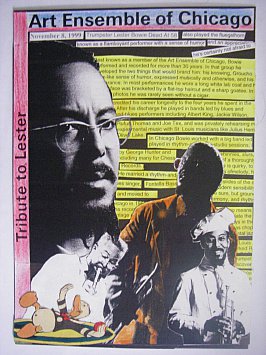
Humour hasn’t had much place in jazz. Certainly Dizzy Gillespie and
Louis Armstrong entertained by mugging things up. But mostly jazz is
poker-faced music played to furrowed brow audiences which think it’s somehow
more morally uplifting than other music.
A couple of years ago Denis Dutton, the philosopher/academic from Canterbury
University, wrote of an anti-capitalist friend in New York who discarded the
consumer society – yet had acquired an extensive and expensive jazz collection.
But, the New Yorker reasoned, jazz is an important modern art-form.
It is. But as Dutton noted his friend could simply have said, “Yeah, but
I like this stuff”.
Dutton's friend sounded an arrogant prick.
Well, jazz does have moments of humour, few more frivolous than a track
on Lester Bowie’s 1992 album All the Magic!, entitled Miles
Davis Meets Donald Duck.
The multi-instrumentalist horn player blew a straw under water and made
it sound like Miles Davis meeting ...
Critics were baffled and some even angry (squandering his talent if not
a few minutes of vinyl), but that was just Bowie having what he called, “serious
fun”.
He did it throughout the 70s and 80s on tunes with titles like Rope-a-Dope
(from Muhammad Ali’s famous phrase) and It’s Howdy Doody Time. In the
late 80s, with his Brass Fantasy band – which often included his wife, the
great soul singer Fontella Bass – he covered Michael Jackson’s Thriller,
the old Lloyd Price hit Personality, Willie Nelson’s Crazy and
Whitney Houston’s Saving All My Love For You.
Bowie’s superb band (which included tuba player Bob Stewart and
trombonists Steve Turre and Frank Lacy) pushed the boundaries of jazz, and
Bowie himself wouldn’t allow them to be pigeon-holed: “Don’t call it jazz, no
way!” he said in 1986, “That word has lost any real meaning. Most real jazz
musicians died penniless, right? So the term jazz to me symbolises poverty.”
Bowie wasn’t poor when he died in 1999 at 58 from liver cancer. He was
well known across the music world – he played on David (no relation) Bowie’s
1993 album Black Tie White Noise – and if anyone could claim to have
changed jazz it was this good humoured, bespectacled member of the innovative
Art Ensemble of Chicago from the mid-60s through to the early 80s.
The AEC – whose members initially wore African tribal costumes and face
paint in performance – were a musical and philosophical attempt to bridge the
divide between ancient black Africa and modernist free jazz. They were the most
visible and influential off-shoot of the Association for the Advancement of
Creative Musicians which formed in Chicago in the early 60s and whose members
included Joseph Jarman, Kalaparusha Maurice McIntyre, Henry Threadgill, Roscoe
Mitchell, Malachi Favors and Andrew Hill.
They were inspired by the music of Albert Ayler, Ornette Coleman, Sonny
Rollins and Art Blakey.
Bowie arrived in 1966 and famously remarked: “I never in my life met so
many insane people in one room.”
The flexible and political philosophical group became known as the Art
Ensemble and in 1989 the quartet of Mitchell, Bowie, Jarman and Favors had
their hometown name appended for a European show. Percussionist Famoudou Don
Moye joined and for two decades the AEC’s percussive exploratory music – much
of it recorded by ECM whose founder/producer, Manfred Eicher, brought a sonic
clarity to their project – was the benchmark in free jazz.
Their albums Fanfare for the Warriors (Atlantic 1974), Urban
Bushmen (ECM, 1982) and The Alternative Express (DIW, 1989), should
be in any serious music collection.
They slew from primal percussion through sophisticated swing with nods
to Mingus and Ellington, and ride the boundaries of free jazz.
Even before the band split, Bowie had his own swaggering and good
nartured projects playing a melange of funk, r’n’b, jazz and blues which
reflected his early years in Texas clubs and as a session player at Chess
studios.
He called his music avant pop (“Even the term avant garde is old now,
avant pop is where it’s at”) and said to those who accused him of being a
musical gadfly: “All’s fair in love and war – and music is both. So use
anything as long as it works.”
His albums The Great Pretender (ECM 1981), Serious Fun (DIW
1989) and the hard to find The Fire This Time (In-Out, 1992), are his
best, although ECM’s readily available 1988 collection, Lester Bowie: Works
is a good starting point.
Deservedly, former members of the AEC – reed-player Mitchell, bassist
Favors and drummer Moye – came together again to pay homage to Bowie, their
fallen comrade.
Their Tribute to Lester of 2003 wasn’t sentimental, nostalgic or
soft-centred. It was as challenging as the AEC ever were.
Driven from the bottom by an array of percussion which was their
hallmark, this hour-long disc muscles along as Mitchell’s tough tenor scours
through passages or swings over Favours’ dexterous playing. And everywhere Moye
brings tonal colour and angularity from his array of congas, bongos, bells,
whistles and gongs. The 12-minute As Clear As the Sun is demanding
listening, especially when Mitchell turns his sax into a police siren.
Tribute to Lester isn’t a classic AEC album – how could it be with two
men down? -- but is better than we had any right to expect, and reminds of how
this music once was and – in the world of manicured and generic jazz – what it
could be again.
The romantic, slightly baroque Suite for Lester floats on
Mitchell’s sopranino sax and flute then takes off on walking-pace tenor. At
five and half minutes it seems undernourished, but also gets out before any
hint of sentiment invades.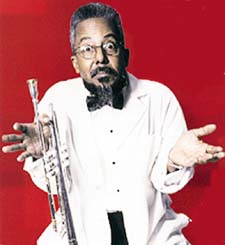
And Bowie was never much for hanging on to the past. He railed against
Wynton Marsalis talking about the tradition: “What tradition? The great jazz
tradition was never copying, right?”
No, it wasn’t and isn’t. It’s about learning, extending and enjoying it.
Like Bowie did.
It’s wrong to speak for the dead but you might guess if he heard this he’d
smile.
The man who knew the meaning of serious fun often did.

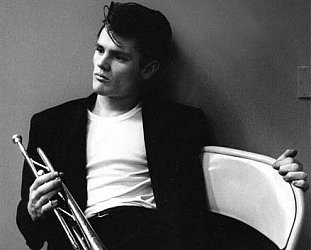
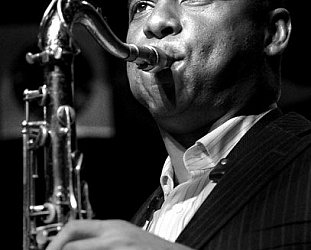
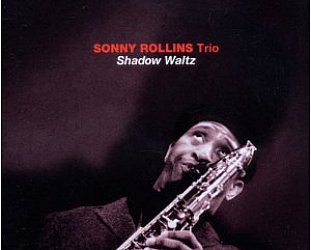
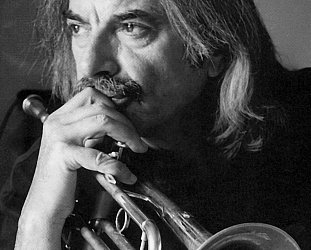
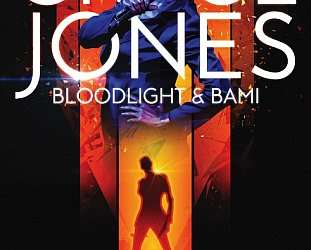

mark - Apr 23, 2010
>>>>>But mostly jazz is poker-faced music played to furrowed brow audiences which think it’s somehow more morally uplifting than other music.
SaveUmmmmm, I'm thinking............Yes you are probably correct.
Wait a minute my poker faced furrowed brow is smoothing out and cracking into a smile.
Perhaps the drugs are kicking in.
post a comment